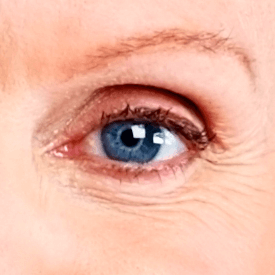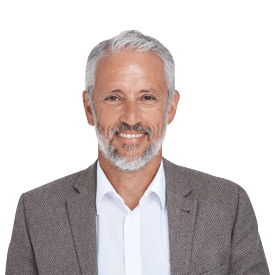

ABOUT MACULAR DEGENERATION
Macular degeneration is one of the most well-known retinal diseases, caused by the deterioration of the macula, which is the central area of the retina. When the central portion deteriorates, patients often begin to lose or have distorted central vision, which is necessary to perform certain functions such as driving, reading, or identifying things correctly. An incurable eye disease, macular degeneration is a leading cause of vision loss in the U.S. and one that Ocala, FL board-certified retina surgeon Dr. Shalesh Kaushal treats daily. Dr. Kaushal uses his unique diagnostic approach to help uncover the root cause of why his patients may have macular degeneration, and then works with them using a customized treatment to manage the condition.
While a diagnosis of macular degeneration can be troubling and upsetting, Dr. Kaushal reassures each patient by offering the latest treatment options. His goal is to slow or stop the progression of the disease so that his patients can live a quality life.
MACULAR DEGENERATION KNOWN CAUSES
The onset of macular degeneration is slow in most cases, with vision loss and distortion occurring similarly to other eye diseases, which is why routine eye exams are helpful. While the exact cause is unknown, research has shown that age, smoking, and genetics play a role. In addition, after completing many of his own studies on retinal disease, Dr. Kaushal believes nutritional factors play a huge role in the onset and progression of macular degeneration. More recently, his research has led to the identification of certain nutraceuticals to mitigate common retinal diseases such as macular degeneration and diabetic retinopathy. This has led him to further understand the direct role of nutritional biochemistry in controlling the structure and function of the retina. This is a very important factor in the diagnosis treatment plan he provides to each patient.
MACULAR DEGENERATION SYMPTOMS
Patients who are diagnosed with macular degeneration will have varying symptoms depending on the type and progression of the disease. Most patients have what is known as “age-related macular degeneration” or AMD, and they will either be diagnosed with having the wet or dry form. In the vast majority of cases, patients are diagnosed with the dry form, which is incurable. However, advanced research, diagnostics, and procedure plans make it possible for patients to manage their symptoms and receive helpful treatments that delay additional progression. Both wet and dry macular degeneration are described below:
- Wet macular degeneration: Only about 10% of macular degeneration patients will have the wet form. This form occurs when abnormal blood vessels leak fluid within the retina’s central portion. Because of how rapidly this type of macular degeneration progresses, once symptoms become noticeable, patients should seek treatment immediately.
- Dry macular degeneration: Approximately 80% – 90% of macular degeneration cases are of the dry form, which can rapidly destroy a patient’s central vision. This type comes on more slowly, causing blurry vision that can take years to develop. There are distinct stages to this type of degeneration ranging from early, intermediate, to advanced. Vision loss can occur in the final stages of this form, which makes eye exams important so that treatment can begin early.
MACULAR DEGENERATION DIAGNOSIS
There are two common ways to diagnose macular degeneration. OCT, known as optical coherence tomography, is an ophthalmology imaging method that uses light to capture high-resolution, 3D images of the back of the eye. It allows the surgeon to see the back of the retina and understand what is taking place. In addition, fluorescein angiography is a medical test in which a unique form of fluorescent dye is injected into the bloodstream. As the dye moves through the bloodstream, it accentuates and highlights the blood vessels in the back of the eye. The eye is then photographed for diagnostic purposes to detect retinal disorders.
While these two exams are important in diagnosing macular degeneration, Dr. Kaushal will also perform a full medical exam, which will include a formal background into the patient’s lifestyle, diet, and nutrition. This is part of his unique approach to diagnosing macular degeneration and how it may or may not affect the onset, progression, and overall treatment approach.
MACULAR DEGENERATION TREATMENT AND PROGNOSIS
Although macular degeneration does not have a formal cure, there are numerous treatments that can be applied and performed to slow the progression and improve symptoms. Anti-VEGF medications are used on many patients, and as injections such as Avastin, Lucentis, and EYLEA chemically shrink the abnormal blood vessels to help improve central vision. These treatments are applied and need to be repeated depending on the severity of the disease. Dr. Kaushal is actively developing stem cell treatments for retinal diseases. In the area of macular degeneration, many advancements continue to be made each year.
SEEK HELP TODAY
Ocala, FL retina surgeon Dr. Shalesh Kaushal collects as much clinical data as possible with each individual, along with assessing the retina’s structure and function, so that his patients have a unique opportunity for achieving improved overall vision. If you are experiencing vision loss and seeking help, we invite you to call Comprehensive Retina Consultants today to schedule your consultation with Dr. Kaushal.


